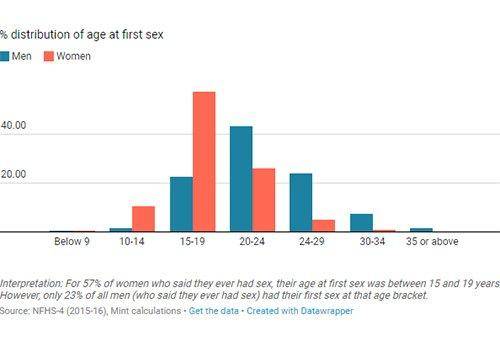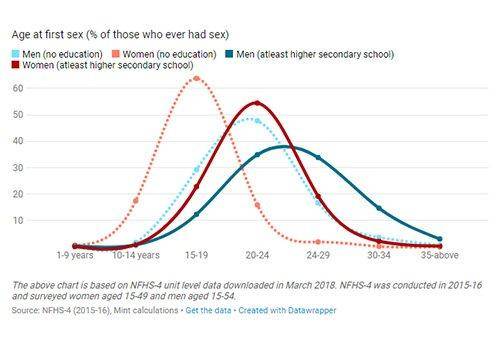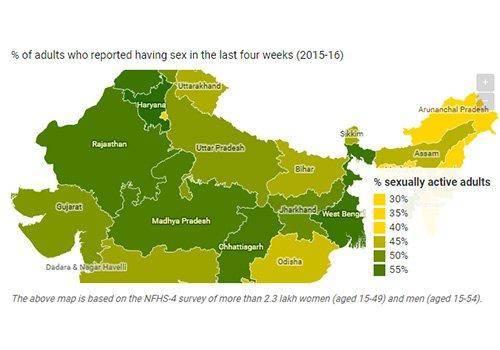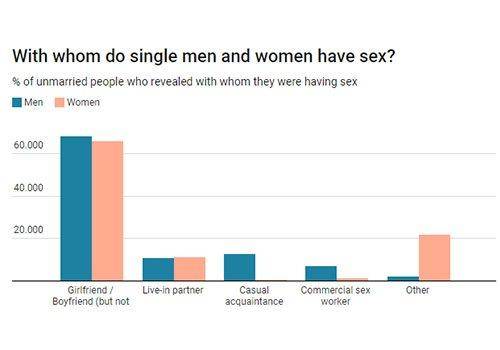In 2010, the World Association for Sexual Health (WAS) called all related organizations to celebrate, September 4 each year as World Sexual Health Day. This was an effort to promote greater social awareness of sexual health across the globe. Annually observed on September 4 since 2010, World Sexual Health Day is an awareness day managed by the World Association for Sexual Health (WAS), a global advocacy organization committed to promoting best practices in sexual health. This day is celebrated in an attempt to break down social and cultural taboos associated with sexuality and to promote positive sexual health around the world.
Awareness About Sexual Health
Table of Contents
The first World Sexual Health Day was celebrated with the slogan “Let’s talk about it!”. World Sexual Health Day is an awareness day committed to promoting best practices in sexual health.
Dr Sharmila Majumdar, a senior sexologist and psychoanalyst by profession runs a sexual and mental health clinic at Avis hospital, Hyderabad where she is the chief sexologist and director. She earnestly wants to see our country break the shackles of ignorance and get educated in the field of sexual health.
She strongly advocates defending safe sex. When we are living in an era of sexually transmitted infections, poor or no knowledge about the medical aspects of sexual health is detrimental to personal growth.
“Good sexual health will promote good family relationships, bringing down divorce rates, infections, infertility and make our young citizens aware and conscious about their sexual health,” said Dr Majumdar.
Related Reading: What are the best contraceptives for newly married couples?
What young people need to know?
Young people need to be aware of ways of maintaining sexual health feels Dr Majumdar.
There should be:
- Skills like condom use and talking about HIV with a partner
- Comprehensive sex education
- Youth-friendly services
- Community health efforts that include young people
- Young LGBT to be honored and valued for who they are
- Finally a voice in a decision that affects them to have a healthy sexual life
Indian data on sexual health

Among Indians who have sex, more than 90% had their first sexual intercourse before reaching the age of 30, according to data from the National Family Health Survey (NFHS), a large-scale nationally representative survey conducted in 2015-16.
Men are most likely to have had their first sexual intercourse at the age of 20-24, the data shows. For women, the peak age at first sex is lower at 15-19. The average age at first sex for Indian women is lower than that for men
The difference between the genders is primarily on account of the difference in the ages at which they tend to get married. Most sexual encounters in India tend to be of the conjugal kind, the data suggests. Thus, women tend to have sex at an earlier age because they get married at a younger age.
Education delays sex

The data suggests that pre-marital sex is still taboo across large swathes of the country. Only about 11% of single men and 2% of single women in the 15-24 age group reported having had sex. The proportion of single men (15-24 age-group) reporting pre-marital sex was relatively higher in Chhattisgarh (21.1%), Punjab (21%), Madhya Pradesh (20.7%) among the major states. The NFHS data on sexual relations is based on a sample of more than 100,000 men and women each.
The data shows that north Indians report a more active sex life compared to those in the South.
More than 55% of both men and women respondents in states such as Haryana, Punjab, Chhattisgarh, and West Bengal reported having sex in the four weeks prior to being surveyed. Other states where a majority of people reported active sex lives are Madhya Pradesh and Rajasthan.
North Indians reported a more active sex life compared to those in the South. Nationally, 47% of men and 48% of women reported having sex over the past four weeks. One caveat worth keeping in mind is that the figures are based entirely on self-reported data and it is difficult to gauge the extent of false reporting.
The proportion of single people who reported an active sex life is lower compared to the overall average: 3% of single men (across all age groups) reported having sex in the four weeks prior to the survey. Among single women, the figure is even lower at less than 1%.

The proportion of sexually active single males is relatively higher (above 5%) in states such as Punjab, Haryana, Chhattisgarh, and Madhya Pradesh. The proportion of sexually active single females is relatively higher in Karnataka (2%) and Gujarat (1.9%). Singles include never-married persons as well as those who were married but are not married now.
Fourteen percent of never-married men and 2% of never-married women reported having had sex.
The rates vary across states, but there is a close correlation across states between the proportion of never-married males and the proportion of never-married females who reported having had sex.
Related Reading: Is it safe to have sex with UTIs?
Sex among single people
Of those singles who reported having sex, a majority had sex with their boyfriends or girlfriends (who do not share the same accommodation). Roughly a tenth of them reported having sex with their live-in partners.
With whom do single men and women have sex?

Twelve percent of single men who have had sex reported having sex with casual acquaintances while 6% of such men reported using the services of a commercial sex worker. The corresponding figures for single women are extremely low.
But given that a significant chunk of women reported “other” as their sexual partner it is possible that the actual number of women who have had sex with casual acquaintances is higher than what they choose to report.
This data has been gathered by the National Health Family Survey.]
FAQs
1. How aware are people in India about sexual health?
Awareness of sexual health is improving in India, particularly in urban areas where access to information through the internet and educational resources is increasing. However, in rural regions, there is still a lack of comprehensive sexual education, and traditional taboos often hinder open discussions on the topic.
2. How sexually active are people in India?
Data suggests that sexual activity in India is influenced by cultural, religious, and societal norms. While younger generations, particularly in urban areas, are more open about sexual relationships, conservative attitudes still persist in many regions, affecting how people engage in and discuss their sexual lives.
“Recent surveys show that younger generations are becoming more open about their sexuality, but many still face cultural and societal pressures that influence their sexual activity and attitudes.”
3. What is the level of access to contraception and sexual health services in India?
Access to contraception and sexual health services varies greatly in India. Urban areas have better availability and more open discussions about these services, while rural areas often face challenges due to societal stigma, lack of access, and misinformation.
Final Thoughts
As India continues to develop, the landscape of sexual health awareness and activity is slowly evolving. Younger generations are becoming more open about sexual relationships, while access to sexual health services is improving, especially in urban areas. However, societal stigma and lack of comprehensive sexual education still remain significant barriers. It is crucial to continue advocating for open discussions, comprehensive sex education, and better access to health services to ensure that sexual health awareness reaches all corners of the country.
World Sexual Health Day serves as a reminder that improving sexual health awareness is not just about individual well-being but also about creating a society where people can engage in informed, safe, and respectful relationships. Continued efforts from the government, educational institutions, and communities are essential to make progress in this area.
Millennial Relationship: Are the Millennials Having Less Sex?
12 Ways To Protect Yourself From Sexually Transmitted Diseases (STDs)
Your contribution does not constitute a charitable donation. It will allow Bonobology to continue bringing you new and up-to-date information in our pursuit of helping anyone in the world to learn how to do anything.











Featured
Essential Job Search Strategies For Parents Returning To The Workforce
Embracing Emotional Vulnerability: Encouraging Men To Express Their Feelings
Platonic Cuddling: Meaning, Positions, And Benefits
50 Examples Of Texts To Make Him Feel Guilty For Hurting You
Wedding Dreams — What Do They Mean?
When You Dream About Someone Are They Thinking Of You
How To Help Your Partner Deal With Academic Pressure
5 Ways Exercise And Fitness Improve Your Sex Drive